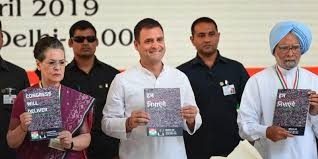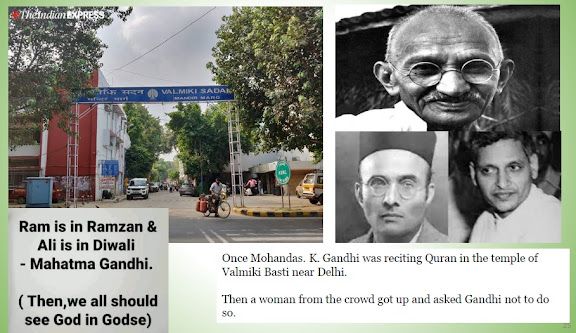3 FARM ACTS
3 Farm Acts -
![]() FARMER’S PRODUCE TRADE AND COMMERCE (PROMOTION
AND FACILITATIONS) ACT – 2020
FARMER’S PRODUCE TRADE AND COMMERCE (PROMOTION
AND FACILITATIONS) ACT – 2020
FARMERS’ (EMPOWERMENT AND PROTECTION) AGREEMENT ON PRICE ASSURANCE AND FARM SERVICES ACT,2020
These Three Acts are boon and not bane to farmers. Oppositions instead of putting forth its objections across the board, they had chosen the “Streets” and “Agenda of Accusations”.
One Party Chief had gone on record to declare openly in public forum that “when his party comes to power, the first duty is to tear these 3 bills and consign them to dust bin.” Even his own party Prime Minister had got the taste of his ‘tearing the duly cabinet approved bill to be thrown into dust bin.” Actually, he tore the bill into pieces and threw them into the air. Such utterances are not acceptable in a democracy.
Dissent is a core principle of democracy and it should be effetely brought home to the Government through Powerful Debates and Discussions in the august assemblies.
But, Disruption is not Dissent and Disruption is the biggest bane of democracy.
Right to Dissent cannot be claimed by those who indulge in disruption.
Opposition Party Members misbehaviors like dancing on top of tables, breaking equipments and flinging abusive barbs at the Deputy Chairman were not Expression of Dissent but acts of hooliganism.
33 of 107 members of opposition parties, including many prominent and senior leaders were absent at the time of voting. This itself proves their utter disregard shown towards the concerns of agricultural farmers and they had failed in their constitutional duties as people’s representatives. Further these same reforms were incorporated in Congress Manifesto in 2019 General Election revealing their double standards fit enough to be labeled as hypocrites.
Congress in its manifesto in 2019 said it
will repeal the Agricultural Produce Market Committee’s Act and make the trade
in agriculture produce-including export and inter-state trade-free from
restrictions.
Punjab, Tamil Nadu, Odisha under SAD, AIADMK and
BJD, respectively, have passed farming acts while many other states have made
provisions for contract farming under the state APMC Act.
In 2010, a working group of ministers formed during the Manmohan Singh Government also recommended adoption of these same agriculture reforms which were hailed as devine then, but, now these reforms had become devil.
Suppose a farmer get rs.5 per kg for his potatoes and a consumer pays rs.40 per kg. The new 3 agri-bills will ensure that if consumer pay rs.40 per kg, the farmer should at least get rs.15 to 20 per kg – i.e. 40 to 50 % of consumer price.
The difference of Rs.35/- goes to the pockets of middle men, mandi and State Government under APMC.
Take the case of Punjab. Punjab APMC charges around 8.5% - Mandi Charge – 3%, Village Development Cess – 3%, and– 2.5% as Middle Men commission on Agricultural Produce purchased from farmers.
Now, Farmers are continued to be protected under MSP and also there is no compulsion to sell their produce only to APMC controlled Mandis. Previously Farmers will be at the mercy of Middle Men called Mandi Commission Agents to arrange to sell their produce. In Last year around 40,000 such middle men in Punjab Mandi earned rs.1600 crore and Punjab Mandi earned rs.1750 crore as its charge.
Now the compulsion to sell produce only to APMC Mandi – by losing around 8.5% on its selling price was made as options and freed farmers from the Middle Men controlled Mandis.
White Revolution’s modus operandi is being brought in to these 3 agri bills and the benefits will be felt only after 2/3 years. Green Revolution had resulted in increased harvest, but, the full price benefits could not be reaped by the Farmers as in the case of Milk or Poultry Schemes.
Mandis farmer, if they choose to sell their produce to private buyers either under contract or open market, they are saved of these 8.5% taxes, commission and cess.
Usually Socialistic Policy Lovers will be behind the slogan of “Abolish Middle Men” – but, here they are supporting middle men because of political compulsion.
In the present agricultural marketing system, neither farmer nor consumer gets the benefit of price, but, the Commission Agent and Mandi Managements due to the monopoly of procurement get the lion share in procurement of agriculture produce from farmers and then again selling to consumers through their cartel system.
Some raised objections on the ground that Agriculture falls within the exclusive legislative competence of State government, through Entry 14 of the State List. But 3 Agri-Acts have been enacted by Parliament on the basis of legislative competence to do so under Entry 33 of the Concurrent List which deals with ‘trade and commerce’.
Further to impose MSP upon private players could be at loggerheads with the free market economy principle enshrined under Article 301 of the Constitution.
Hence it is highly unlikely that the criticism of ‘federalism violated by these 3 new reform agri-laws’ may not stand the test of law. Further with the passage of time, when the farmers had tasted the price benefits and other supportive buyers’ favorable terms of contracts, the opposition will fade away.
Anyhow it is a fact that State Government Controlled Mandis and its middle men would be out of business. But, Green Revolution to succeed like White Revolution, this fall out needs to be accepted as a necessary evil for a greater benefit.
Punjab and Maharashtra Middle Men should help the Tiller of Lands to reap the maximum profit by marketing their produce in the open market or to mandis – options to choose to be vested with the farmers only.
SATYAMEVA JAYATHE.








Comments